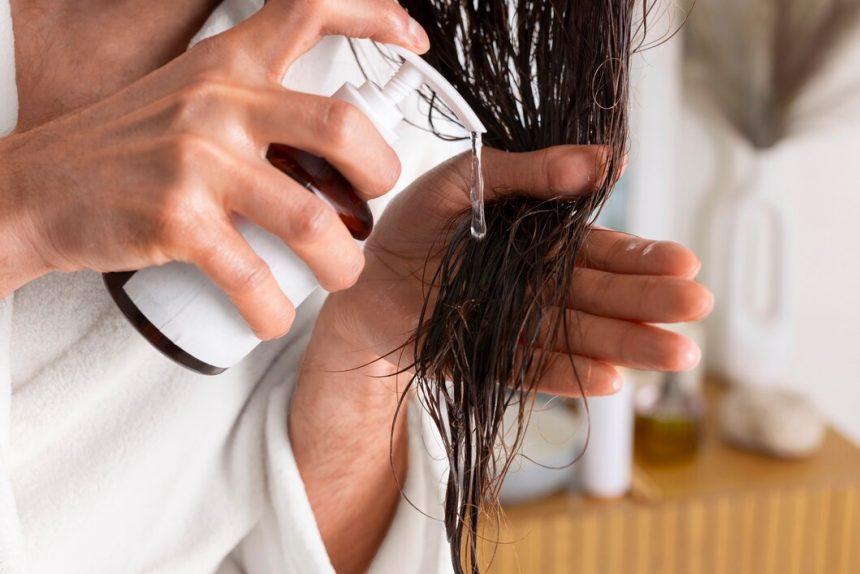When it comes to looking and feeling your best, great hair can make all the difference. Effective hair care is not only about aesthetics but also about nurturing the health of your hair and scalp. Whether you’re striving for luscious locks, improved volume, or a vibrant shine, adopting the right hair care routine is essential. This comprehensive guide will walk you through everything you need to know about hair care, from understanding your hair type to natural remedies and common mistakes to avoid.
Understanding Your Hair Type
Knowing your hair type is the first step toward creating a tailored hair care routine. Different hair types have unique needs, and recognizing these can help you select the right products and treatments.
- Straight Hair: Often has a smooth texture but can become oily quickly. It may need lighter products that don’t weigh it down.
- Wavy Hair: Naturally textured with gentle waves, requiring products that control frizz while maintaining bounce.
- Curly Hair: Prone to dryness and frizz, curly hair benefits from extra moisture and gentle handling.
- Coily Hair: Typically fragile and dry, coily hair needs rich hydration and minimal manipulation to prevent breakage.
By identifying your hair type, you can optimize your hair care regimen to enhance its natural beauty and address specific concerns such as frizz, dryness, or oiliness.
Essential Daily Hair Care Routine
A consistent daily routine is key to maintaining healthy hair. Here’s a breakdown of the core steps to follow for effective hair care:
Cleansing
Cleansing is the foundation of every hair care routine. Use a gentle, sulfate-free shampoo tailored to your hair type to remove dirt, oil, and styling product build-up. For oily hair, you might need to wash more frequently, while dry or coily hair may require less frequent cleansing to preserve natural moisture.
Conditioning
After shampooing, apply a conditioner that suits your hair’s specific needs. Conditioning helps to replenish moisture, smooth the cuticle, and ease detangling. For added benefits, consider a leave-in conditioner, especially if your hair is prone to dryness or damage.
Drying and Styling
Avoid harsh towel-drying methods that can cause breakage and frizz. Instead, gently squeeze out excess water with a microfiber towel or let your hair air dry. When styling, use heat-protectant sprays if you’re using blow dryers or other heat tools, and consider embracing your hair’s natural texture with minimal heat styling.
Regular Trims
Regular haircuts are a vital part of any hair care routine. Trimming your hair every 6-8 weeks helps prevent split ends and breakage, ensuring that your hair remains healthy and vibrant over time.
Top Hair Care Tips and Tricks
In addition to a basic routine, several advanced tips can elevate your hair care regimen and promote overall hair health.
Deep Conditioning Treatments
Integrate a deep conditioning treatment into your routine at least once a week. Deep conditioners penetrate the hair shaft to provide intense moisture and repair damage. Whether you opt for a store-bought product or a DIY mask, this step can rejuvenate dull or damaged hair, leaving it softer and more manageable.
Scalp Care
A healthy scalp is the foundation for healthy hair. Regularly massaging your scalp not only feels great but also stimulates blood circulation, promoting hair growth. Consider using specialized scalp treatments or oils to combat issues like dandruff and dryness.
Wide-Tooth Comb for Detangling
Use a wide-tooth comb to detangle your hair, especially when it’s wet. Start from the ends and work your way up to minimize breakage. This simple tool can help maintain the integrity of your hair while preventing unnecessary damage.
Protection from Environmental Damage
Environmental factors such as sun exposure, pollution, and harsh weather can negatively impact your hair. Protect your hair by wearing hats or using products with UV filters when spending extended periods outdoors. Additionally, consider a protective serum that can shield your hair from environmental aggressors.
Sleep on Silk
Switching to a silk or satin pillowcase can dramatically improve your hair care routine. These materials reduce friction during sleep, helping to prevent frizz, tangles, and breakage. The smooth texture of silk minimizes hair damage compared to traditional cotton pillowcases.
Natural Remedies and DIY Hair Treatments
For those who prefer natural approaches, there are plenty of DIY treatments that can enhance your hair care routine using ingredients found in your kitchen.
Coconut Oil Treatment
Coconut oil is a popular natural remedy for hair care. Warm up a small amount of coconut oil and massage it into your scalp and hair. Leave it on for at least an hour, or overnight for deeper conditioning, then rinse thoroughly. This treatment helps moisturize, strengthen, and add shine to your hair.
Aloe Vera
Aloe vera isn’t just great for skin; it’s also beneficial for hair care. The natural enzymes in aloe vera help soothe the scalp, reduce inflammation, and promote healthy hair growth. Apply pure aloe vera gel directly to your scalp as a pre-shampoo treatment or mix it with your conditioner.
Apple Cider Vinegar Rinse
Apple cider vinegar can help balance the pH of your scalp, reduce dandruff, and enhance hair shine. Dilute apple cider vinegar with water (one part vinegar to three parts water) and pour it over your hair after shampooing. Rinse thoroughly to reveal smoother, more vibrant hair.
Honey and Yogurt Mask
A mixture of honey and yogurt can work wonders as a hair mask. Honey is a natural humectant, which means it helps retain moisture, while yogurt provides protein and lactic acid to nourish your hair. Apply the mask to your hair, leave it on for about 20-30 minutes, then rinse off with lukewarm water.
Herbal Infusions
Herbal infusions made from rosemary, lavender, or chamomile can be used as natural hair rinses. These herbs not only impart a pleasant scent but also stimulate the scalp and promote healthy hair growth. Brew the herbs in boiling water, let the infusion cool, and then use it as a final rinse after washing your hair.
Common Hair Care Mistakes to Avoid
Even the most diligent hair care enthusiasts can fall prey to common mistakes. Avoid these pitfalls to ensure your hair stays in top condition:
Over-Washing
While keeping your hair clean is important, over-washing can strip your hair of natural oils, leading to dryness and damage. Adjust your washing frequency according to your hair type—oily hair might need more frequent washes, while dry or curly hair can benefit from washing less often.
Excessive Use of Heat Styling Tools
Heat styling tools like blow dryers, flat irons, and curling irons can cause significant damage if used excessively. Always use a heat protectant spray, and try to limit the use of these tools to avoid long-term damage.
Neglecting the Scalp
Many people focus solely on their hair strands and neglect their scalp. A healthy scalp is essential for hair growth and overall hair health. Regular scalp massages, proper cleansing, and targeted treatments can help maintain a healthy environment for hair growth.
Using Harsh Chemicals
Avoid products with harsh chemicals such as sulfates, parabens, and silicones, which can strip your hair of its natural oils and cause build-up. Opt for natural or organic hair care products whenever possible to ensure your hair remains nourished and vibrant.
Skipping Regular Trims
Neglecting regular haircuts can lead to split ends and breakage, ultimately undermining your hair care efforts. Trimming your hair regularly helps maintain its health and prevents minor issues from escalating into major damage.


